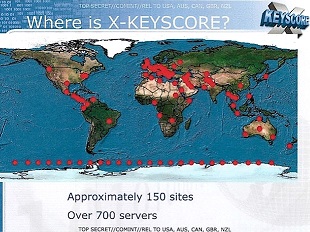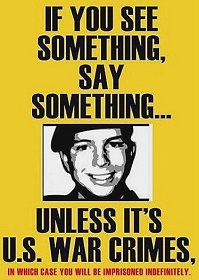Manning Verdict Risks Freedom of the Press if the People Do Not Act
Kevin Zeese

Bradley Manning leaves the court after hearing the judge's verdict
on July 30, 2013 (Photo: Associated Press / CBC News)
The verdict in the Bradley Manning trial has already begun to create reverberations as people start to understand its impact, beyond the impact on Manning. While the greatest threat to Manning, Aiding the Enemy, was defeated, another threat, The Espionage Act, was not. The crimes Manning was convicted of mean he is risking 136 years in prison. For a whistleblower who exposed war crimes and unethical behavior in U.S. foreign policy to be facing a lengthy prison term, while the people exposed by government documents are not even investigated, shows how confused the United States has become.
In fact, the crimes Manning exposed were much more serious than the crimes of which he has been convicted. The “Collateral Murder” video which showed U.S. soldiers slaughtering innocent Iraqis, and two Reuters journalists, with joy and glee is one example of many civilian killings that deserve prosecution.


























